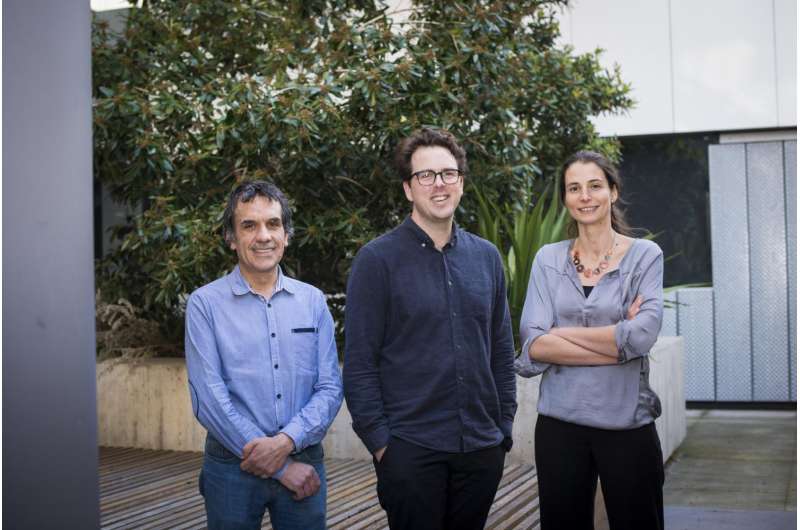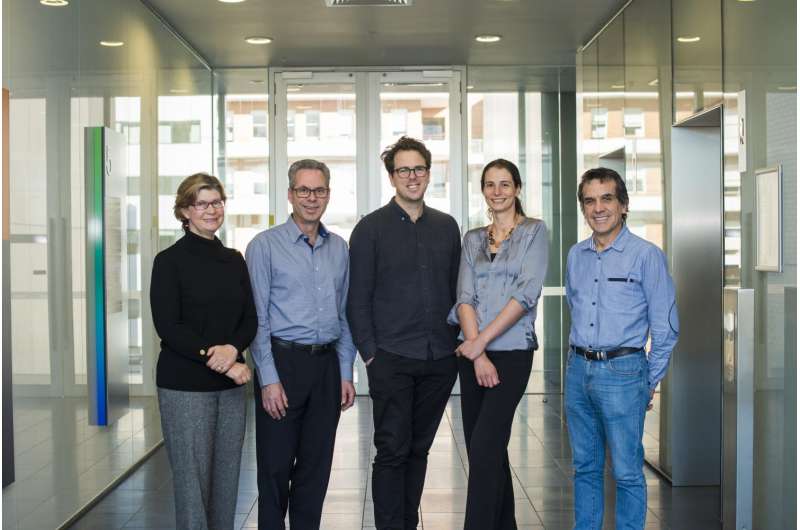Targeting 'Achilles' heel' could supercharge breast cancer treatment

A new class of anti-cancer agents that target cancer cells' 'Achilles' heel' could help to supercharge breast cancer treatment, improving outcomes for some of the most aggressive types of breast cancer.
Combining anti-cancer compound S63845 with currently used cancer drugs was more effective in killing triple negative breast cancers and HER2-positive breast cancers. This is the first time the S63845 compound, developed by pharmaceutical company Servier, has been shown to be effective for treating breast cancer, with the promising results suggesting it should be investigated in clinical trials.
The results are particularly important for triple negative breast cancers because, unlike other breast cancers, they have not seen substantial improvements in treatment or patient outcomes in the past 30 years.
The research was led by Dr Delphine Merino, Dr James Whittle, Dr François Vaillant, Professor Jane Visvader and Professor Geoff Lindeman from Melbourne's Walter and Eliza Hall Institute, in collaboration with Servier. The study was published today in Science Translational Medicine.
Professor Lindeman, also a medical oncologist at the Peter Mac and Royal Melbourne Hospital, said MCL-1 inhibitor S63845 was one of a promising new class of drugs that triggers tumour cell death by targeting the cancer's 'Achilles' heel'. "Our hope is that it will be possible to combine MCL-1 inhibitors with conventional therapies to more effectively treat certain types of breast cancer and deliver better outcomes for our patients," Professor Lindeman said.
Around one in three Australian women with breast cancer have a triple negative or HER2-positive breast cancer. Triple negative breast cancers are particularly common in women with a faulty BRCA1 gene.
Dr Merino said S63845 was particularly effective in treating triple negative and HER-2 positive breast cancers, when tested in samples taken from patients' tumours. "Combining S63845 with standard therapies, such as chemotherapy or targeted drugs such as Herceptin, proved highly effective in killing these very aggressive tumour types," Dr Merino said.
Dr Whittle, who is also a medical oncologist at Peter Mac, said S63845 targeted MCL-1, a protein that Institute scientists had previously shown to be important for cancer cell survival. "MCL-1 gives cancer cells a survival advantage, allowing them to resist chemotherapy or other anti-cancer therapies that would otherwise trigger cancer cell death," Dr Whittle said.
"Importantly, the combination of the MCL-1 inhibitor S63845 with standard therapies was far more effective than either treatment alone. These can be incredibly aggressive tumours, so to see a response to the combined therapy in this tumour type is very exciting."
MCL-1 is a critical anti-cancer therapeutic target. It is found at excessive levels in triple negative and HER2-positive breast cancers, and is often associated with poor outcomes for patients.

Professor Lindeman said triple negative breast cancers in particular were in urgent need of new treatment options. "Triple negative breast cancers have not seen the same improvement in targeted therapies, or survival, as some other types of breast cancer," he said.
Dr Vaillant said patient-derived tumours provided a valuable way of studying new breast cancer drugs.
"With the support of the Victorian Cancer Biobank, and samples donated by breast cancer patients, we have generated a large number of laboratory models that mimic how tumours behave and respond to therapy in the patient, allowing us to test a range of anti-cancer drugs. This approach can help fast-track the development and transfer of promising drugs to the clinic," Dr Vaillant said.
More information: D. Merino el al., "Synergistic action of the MCL-1 inhibitor S63845 with current therapies in preclinical models of triple-negative and HER2-amplified breast cancer," Science Translational Medicine (2017). stm.sciencemag.org/lookup/doi/ … scitranslmed.aam7049


















